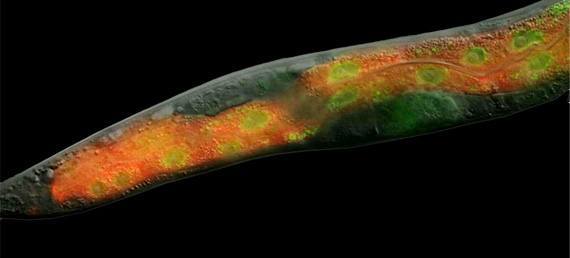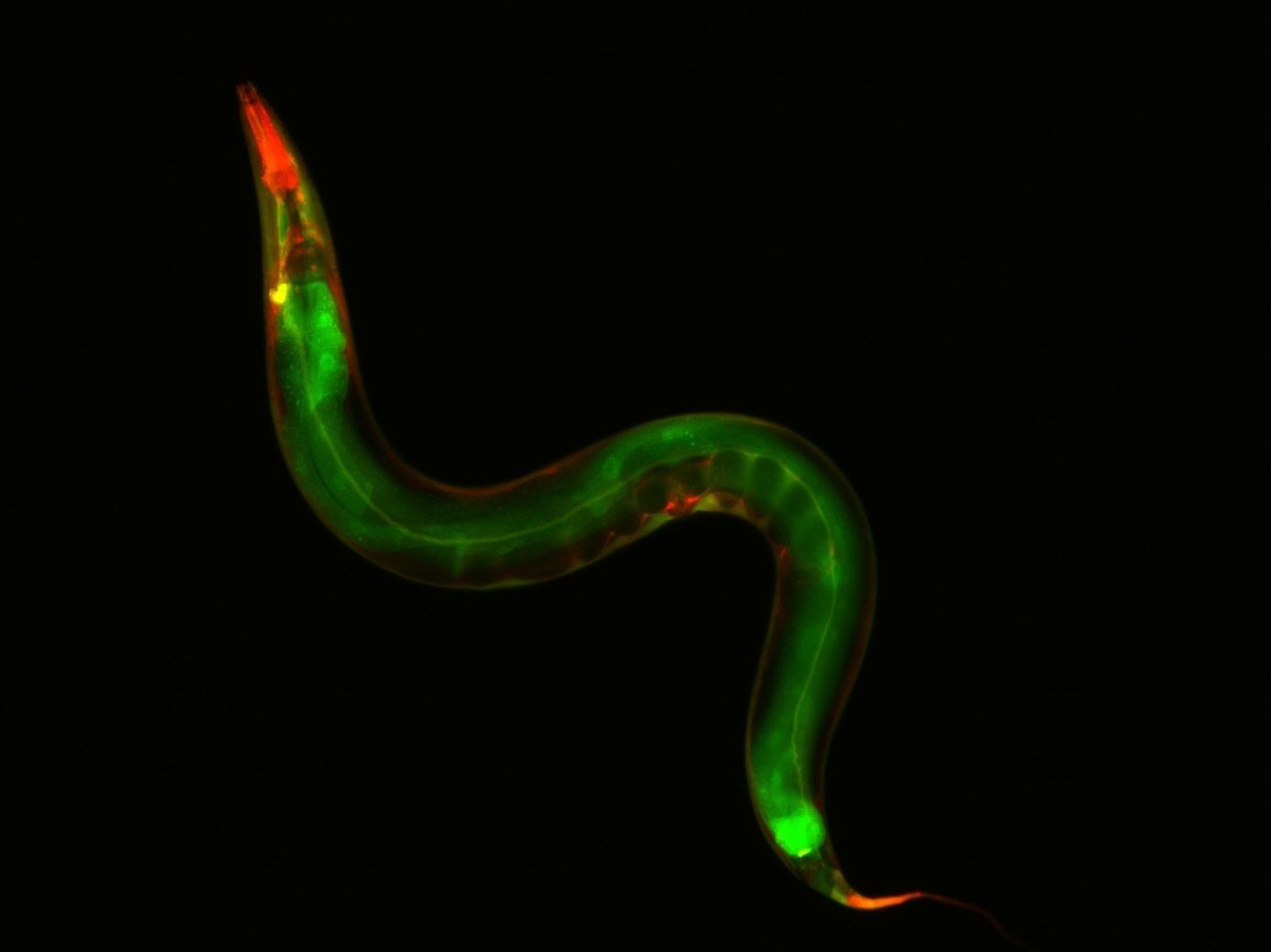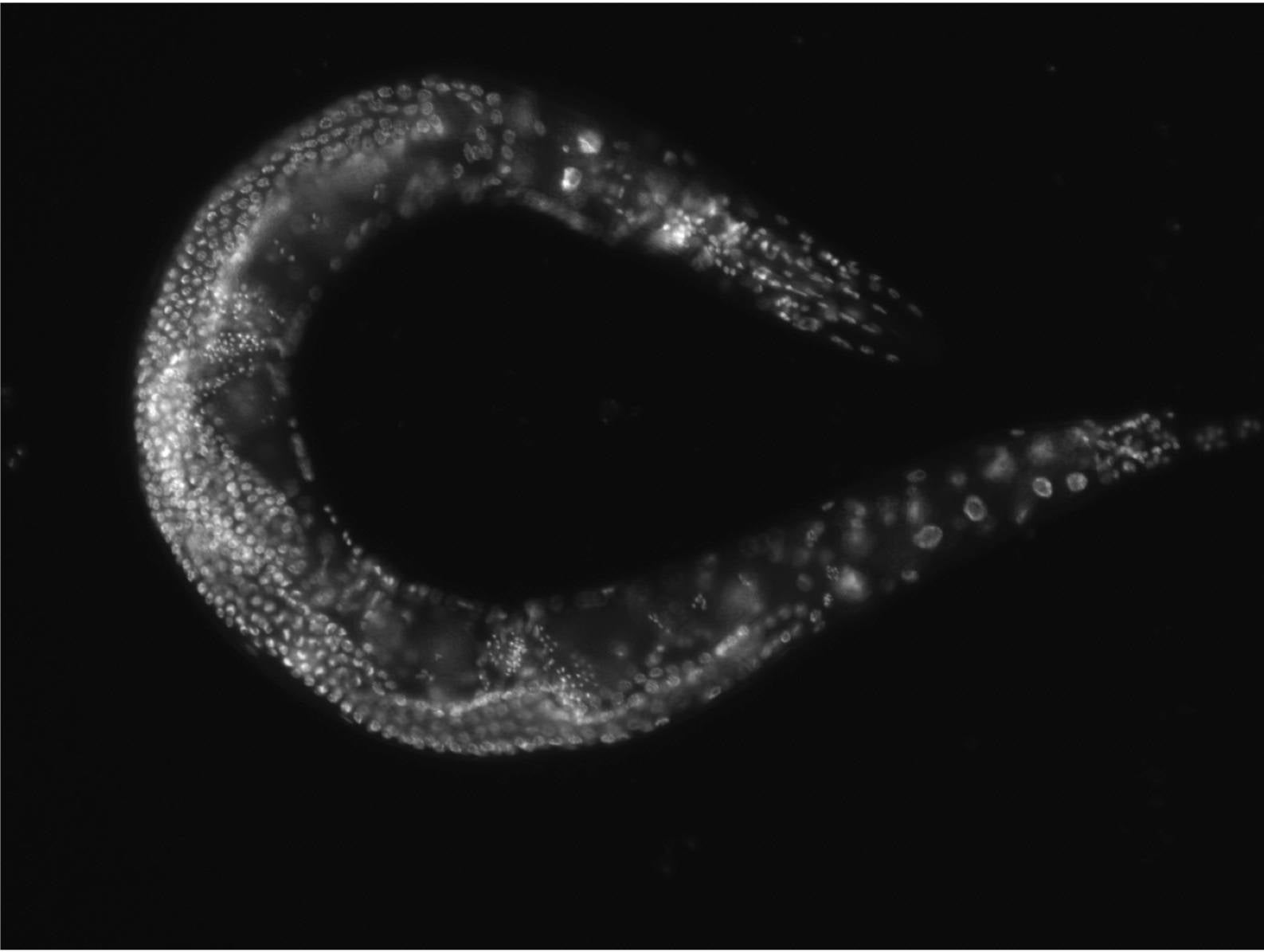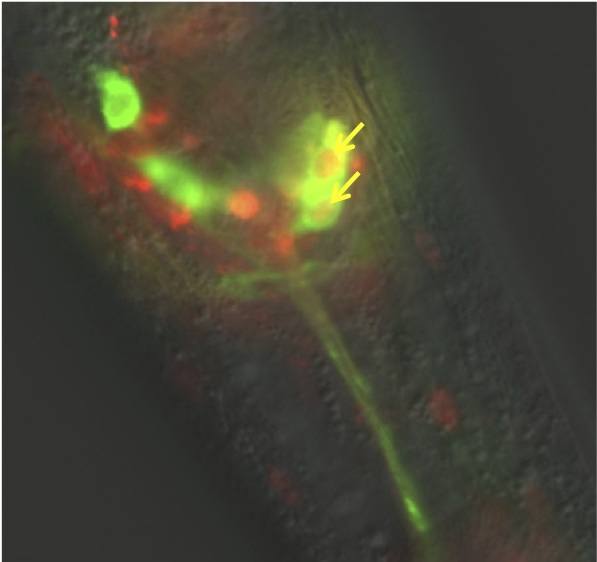
Figure Inspired by the Diversity and Inclusion Lab Posters of Sammy Katta – https://sammykatta.com/diversity
Welcome!
The Mair lab’s research studies the basic biology of the aging process, driven by the central question: Why are we more likely to get chronic diseases when we are old than when we are young? What goes wrong in cells and tissues to increase overall risk, and is this decline inevitable or can we reverse it to bring healthy years to the elderly?
In particular, we study the molecular and cellular mechanisms by which animals modulate the rate at which they age in response to changes in nutrition and the environment. The profound ability to slow aging during fasting or when food intake is reduced is seen in organisms ranging from yeast to primates and is coupled to a striking protection against a suite of age-related pathologies. These diseases include some of the most severe challenges to public health in the elderly: neurodegenerative diseases such as Alzheimer’s disease, cardiovascular disease and many types of cancer. More recently we have begun to appreciate how obesity effectively drives accelerated aging, causing early onset of multiple chronic conditions in addition to type II diabetes that are usually not seen until later in life. By elucidating the genetic and molecular pathways that dictate the link between metabolism and aging, we aim to recapitulate the positive effects of dietary restriction on lifespan and health without the need for changes in dietary intake and its associated detrimental side effects.
Conserved Mechanisms of Longevity
Recent work has shown that genetic and molecular mechanisms that govern the aging process are conserved right across the evolutionary spectrum from single celled yeast, to nematode worms, fruit flies, mice and humans. This revelation means that we can study aging in real time in genetically malleable species like the nematode worm C. elegans, and uncover novel insights into human aging. Our lab therefore exploits this conservation in how differing animals age, to uncover fundamental mechanisms underlying the aging process in humans.
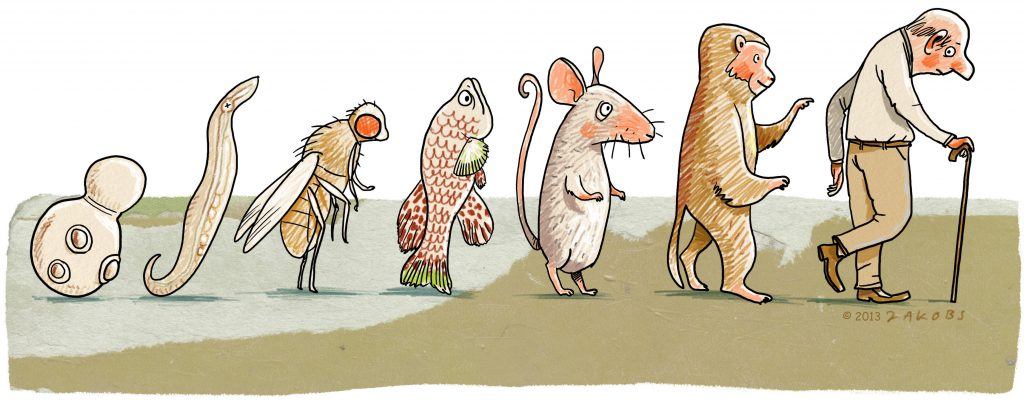
Image copyrighted used here with permission of artist
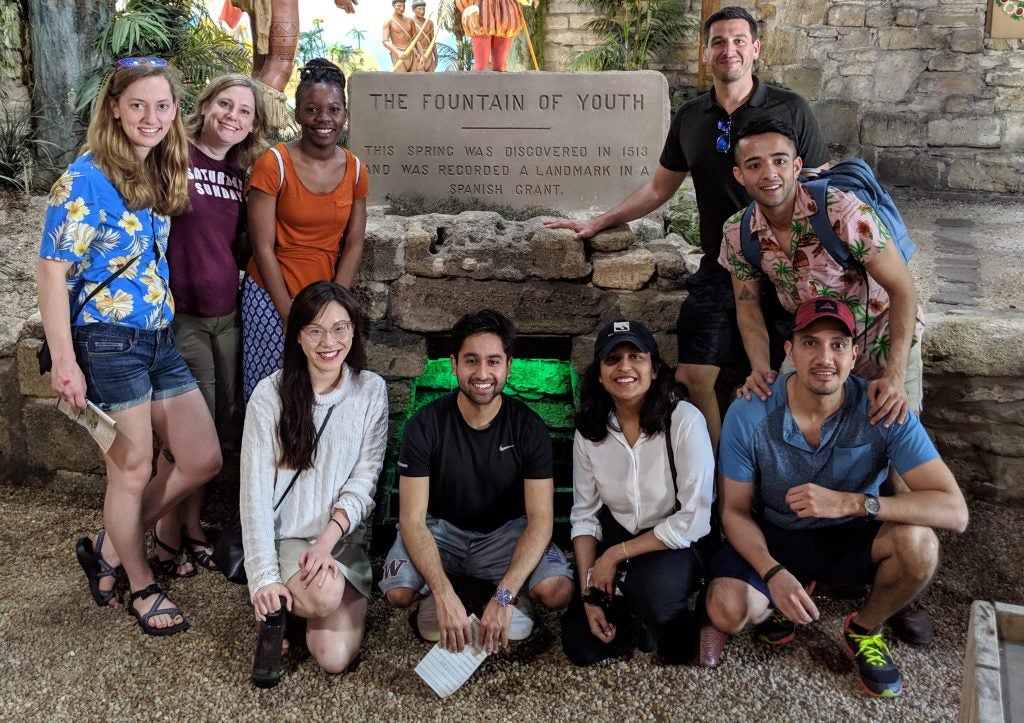
Follow us @themairlab
